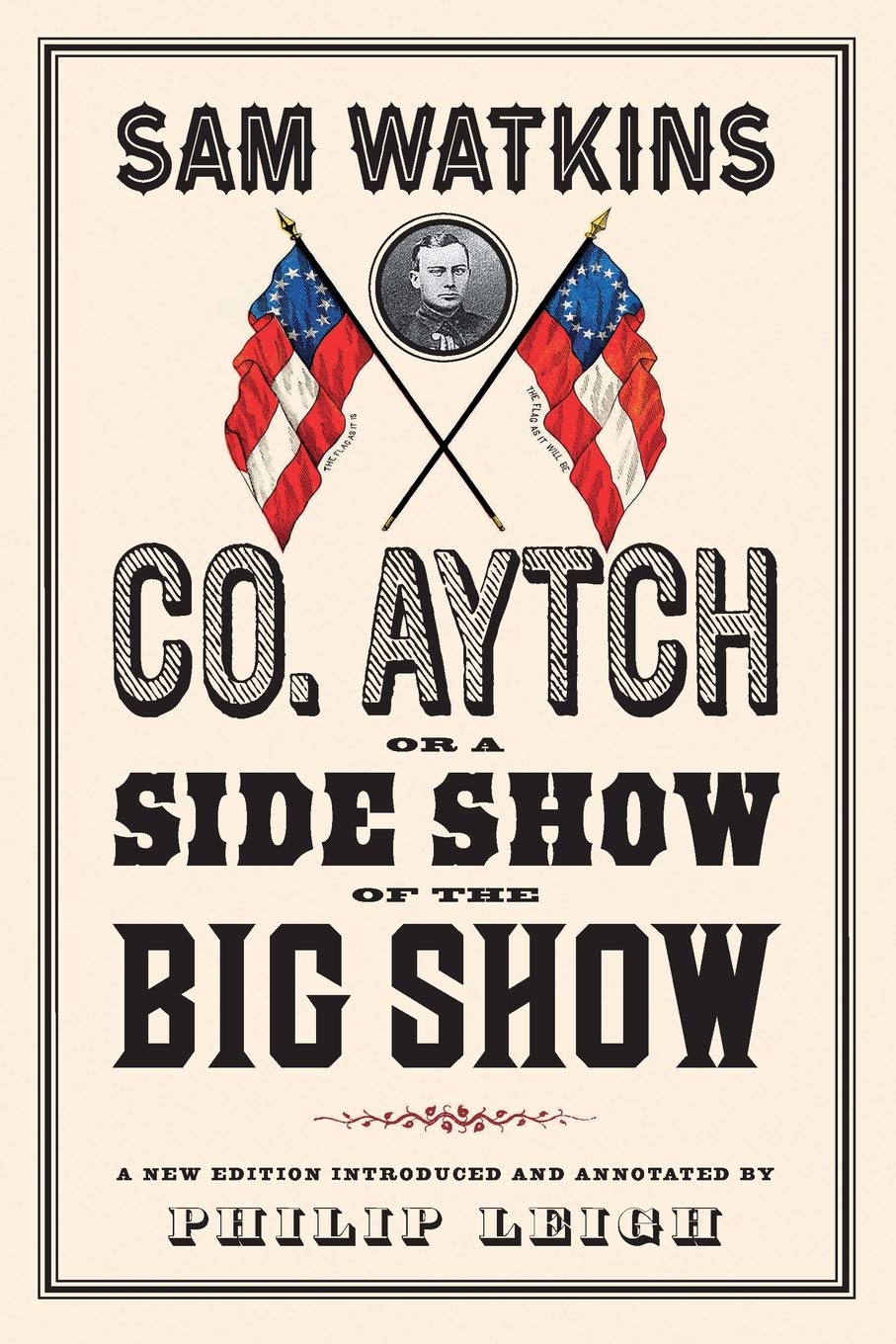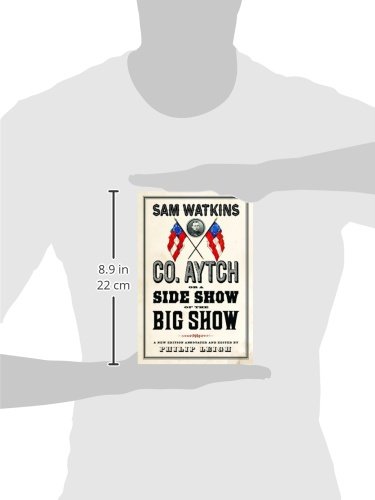



Co. Aytch, or a Side Show of the Big Show: A New Edition Introduced and Annotated by Philip Leigh
P**N
Excellent -- But Not For the Uninformed
If you are a well-studied Civil War buff, this is the book for you. If you are just starting out on the pursuit of learning the history of the great American Civil War -- the reason(s) it was fought, the places it occurred, the people it involved, the changes it provoked, and the attitudes that prevail to this day because of it -- this is NOT the book for you. Start with the great histories first -- read authors like Sears, McPherson, Groom, Fleming, Kearns-Goodwin, Foote, Shaara, et al. Learn about the war as a whole history before exploring it in detail. Having said that, here's my brief review: This is a wonderful book. I admit to being surprised at how articulate an account of his experiences Sam Watkins has written -- a 'private soldier' who seemed to be everywhere in the Western theater of the war, from beginning to end, who met (or at least saw, or heard) almost everyone of note in the confederate army, fought in most of its biggest battles (Shiloh, Atlanta, Kennesaw Mountain, Franklin, Nashville, Chattanooga, Bull Run, etc.), and, as they say, lived to tell the tale -- in this case, some 20 years after mustering out as a corporal in the confederate army. In this memoir he keeps reminding the reader that he's only telling of what he saw 'as a private soldier' -- a unique perspective, given all the memoirs written by officers and such in the latter part of the 19th century. Also notable is his language: this was written in the spoken lingo of the day, little realizing that it might be read by people -- like us, in the 21st century -- who don't know what 'sappers' (trench / tunnel diggers), 'graybacks' (lice), 'shinplasters' (Confederate paper money), etc., were -- and his descriptions of the battles themselves, including rather detailed descriptions of the wounds his comrades received (brains, entrails, limbs blown off, etc.). The implicit acceptance of death as a part of everyday life in the 19th century -- during war or peace -- will open the eyes of many a 21st century reader. A further note worthy of mention: The editing is superb. The footnotes are enormously helpful; they 'fill in the blanks' admirably, as well as correcting Sam's recollections as to the time and location(s) of many of the events he describes 20+ years after they happened -- often times incorrectly, and sometimes VERY incorrectly. It also reigns in Sam's occasional exaggerations and flights of fancy. In the end -- mainly, I think, because the editor took the time to correct the errors -- you'll love Sam. Even though he was a confederate soldier, and therefore a rebel to the government of the USA, a supporter of slavery, and a sworn enemy to the Union -- you'll still love Sam. This book makes him the real deal in a way you probably haven't considered before.
T**G
This memoir is a treasure trove of first hand experiences ...
This memoir is a treasure trove of first hand experiences by a Confederate soldier in the ranks. It is a valuable reference book for all who want to learn more about a "common" soldier's views and observations during The War Against The South. Sam Watkin's accounts are entertaining, humorous, honest and poignant.
K**S
Worth the effort.
In my opinion Sam can bet a bit tedious. His first person story seems authentic, and he is careful to remind his reader he relying of his memory and perspective. After all he has a long narrative originally published over an extended period of time. Leigh's annotations are particularly appreciated.
J**C
Love this book
Great book... I love the updated version that includes the details that Mr. Watkins could not have known or was mistaken in his interpretation of the details from his memory.An awesome look into the life and struggles of a rank and file soldier... although a very humorous and well spoken one.
R**E
Five Stars
delighted
H**N
A classic memoir
My review should be taken with a grain of salt because the editor chose to use a number of my freely available Wikipedia maps to illustrate the book. However, I have no financial interest in its success, nor did I have any input to the editing/annotation process, so I approach this simply as a reader.Watkins created a classic memoir that is a joy to read, even for those who are not immersed in the study of the Civil War. He is witty throughout and often quite insightful, giving you an understanding of the life of the private soldiers in the Confederate Army, as well as the often flawed officers who commanded them. He includes many references to people and places that might be unfamiliar to modern audiences, but Leigh has done an expert job annotating the memoir, putting them in proper context, and occasionally pointing out errors, which are usually the result of faulty memory (such as confusing the sequence of battles in the Atlanta campaign of 1864, which detracts from the story in no significant way). Watkins makes it very clear that he is not writing a history of the war, but simply his own impressions on the front lines, some of which have become faded in the 20 years after his army's surrender.I have been a Civil War aficionado for over 10 years, and I am ashamed to say that I have never read this memoir until Leigh's annotated edition. It is simply a gem, and I recommend it to all readers.
Trustpilot
2 months ago
1 month ago